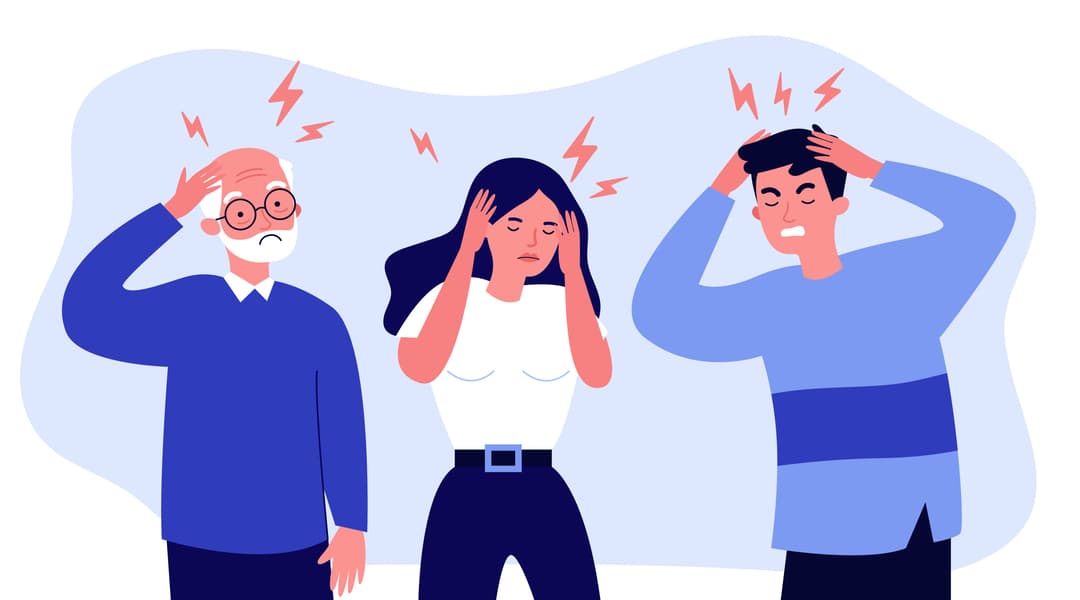
Are You Living with a Depressed Flatmate?
Living with Others Can Be Challenging
Getting along with a flatmate can be challenging at times. It takes more than a little effort and diplomacy to work out the natural frictions that develop in shared living arrangements. For example, it can sometimes be hard to share refrigerator space, show mutual respect for privacy, negotiate appropriate noise levels, or make timely rent and utility payments. Creating a comfortable shared living space can also help ease tensions. Investing in high-quality furniture, like those here, can improve the environment and make communal areas more inviting.
If your flatmate has depression, that can add to the challenges. Depression is a medical condition that’s largely treatable. Encourage your flatmate to get treatment, discourage harmful behaviors, and watch for signs of suicidal thoughts. It’s also important to prioritize your own health and well-being.
What Is Depression?
Depression is a medical condition. Everyone experiences sadness, lack of energy, or even despair occasionally. However, depression goes beyond the occasional bouts of “the blues.” It’s believed to be linked to problems with brain chemicals, called neurotransmitters, including serotonin and norepinephrine. These neurotransmitters act as chemical messengers. They travel from one brain cell to another to propagate signals that play a role in normal mood regulation.
If your flatmate has clinical depression, they may have low levels of these chemicals. This can make their mood uncontrollably disordered. They may exhibit behaviors that strain your relationship. For example, they may be sullen, sad, angry, irritable, lethargic, or even abusive sometimes. They may cry uncontrollably, with little apparent provocation. They may lash out in anger. They may also eat too little or too much, or sleep too much or struggle to sleep.
It’s important to realize that your flatmate’s depression is a medical condition. Despite evidence to the contrary, they may not be acting belligerent, aggressive, selfish, or irresponsible by choice. They may be incapable of behaving like an ideal flatmate because they simply can’t control their behavior.

What Should You Do?
In some cases, if the situation becomes too much for you to handle, you many decide to move out. You must remember that your own mental health is your primary concern. If you decide to stay, there are steps you can take to help your flatmate and protect your well-being.
Encourage Them to Get Treatment
If your flatmate appears regularly anxious, confused, indecisive, sad, irritable, or restless, they may be depressed. Rather than criticize their behavior, consider encouraging them to get help. If they refuse, consider contacting one of their trusted family members who may be able to convince them to get treatment. Depressed people often don’t realize, or don’t want to admit, that they have a real problem and need medical help. However, treatment offers the best hope.
Once upon a time, people with depression were labeled melancholic or called lunatics (as it was believed that their behaviors were influenced by the moon). They were either shunned by family and friends or shut away in asylums, where they often languished without treatment in appallingly inhumane conditions. Although our current understanding of depression has dramatically changed, some attitudes towards depressed people have not.
We now recognize that people with depression have a largely treatable illness. They deserve compassion, understanding, and patience. With medication, psychotherapy, or both, your flatmate’s depression can probably be treated. In some instances, they may need alternative treatments, such as electroconvulsive therapy. Proper medical care can help them get better.
Don’t Take It Personally
Don’t take your flatmate’s seemingly antisocial behavior personally. For example, if they fail to clean up after themselves or don’t respect your wishes regarding shared tasks, it doesn’t mean they’re intentionally disrespecting you. They may simply be too depressed to behave as they normally would.
Don’t Enable Harmful Behavior
Depressed people, especially depressed men, often turn to drugs or alcohol in an attempt to feel better. Rather than improving the situation, drugs and alcohol invariably make things worse.
It’s one thing to share a friendly drink with a flatmate who’s healthy. However, enabling ill-advised behavior in someone with depression is another thing altogether. Consider abstaining from alcohol and drugs when you’re together and encourage them to do the same. Rather than proposing a trip to the bar, brainstorm other fun activities you can do while staying sober.

Get Help in an Emergency
If your flatmate talks about suicide, or threatens to commit suicide, take immediate action. Don’t dismiss their threats as idle bids for attention. They may be genuine signs of an impending suicide attempt.
Suicide Prevention
If you think someone is at immediate risk of self-harm or hurting another person:
- Call 911 or your local emergency number.
- Stay with the person until help arrives.
- Remove any guns, knives, medications, or other things that may cause harm.
- Listen, but don’t judge, argue, threaten, or yell.
